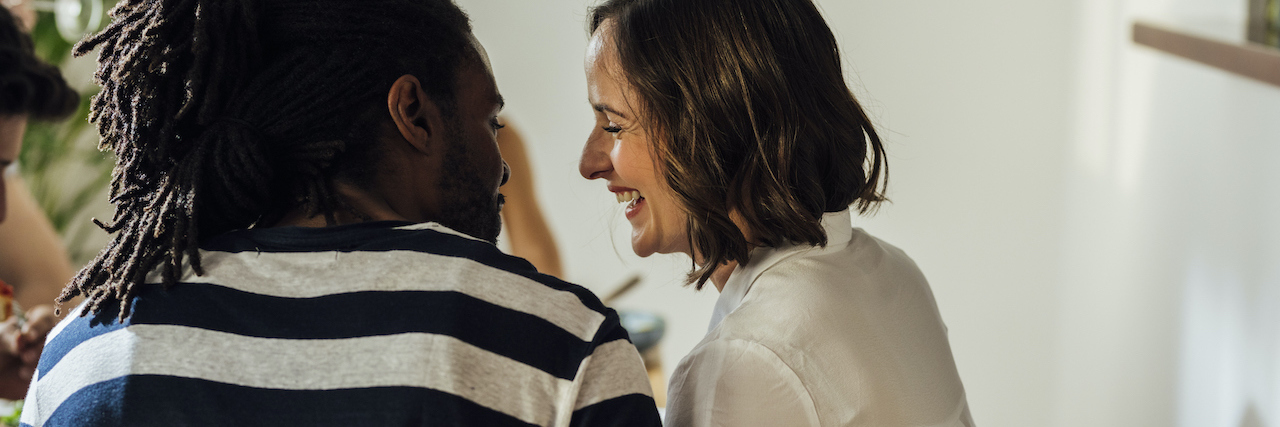I was stunned and embarrassingly heartbroken when I posed the ridiculous question to my well-informed virtual group of over-worked psychotherapists:
“As long as we are discussing self-care strategies during these unprecedented times, just curious… how many of you are watching Outlander?”
Silence.
I was shocked. (Perhaps their computer audio was not working. Was I muted?)
I double-checked, then repeated my question:
“Anyone watching Outlander?”
Nothing.
I’m pretty sure my eyes popped open as I froze on the spot, equally dumbfounded and mortified. In an instant I had shifted from my role as a well-respected and accomplished mentor to a shallow-minded, Netflix groupie hooked on a romantic drama and soft-porn.
The echoes of joy and giggles I predicted were replaced by blank stares. Why would I ask such a ludicrous question in an academic setting? I promptly did what I always remind the group to do when caught off-guard in session — I breathed through my nose. Slowly. In and out. And I smiled. I realized I wouldn’t convince any of them to watch it, and why should I? Surely they have each discovered self-care routines that can help ease the distress imposed upon them by the pandemic, universal unrest and the growing list of external stressors.
Together, this awesome group of clinicians and I spend one hour a week, sitting in the muck of this challenging territory, fueled by our collective quest for meaning. The recent months have inflicted extraordinary pressure on this group, as psychotherapists, as women and as mothers.
But back to Outlander.
Jamie Fraser is not my type. This feels awkward to write at the ripe age of 66, but honestly, he’s not. By objective standards, he is extremely attractive with God-like proportions. Still, as an old hippie with an affinity for the more earthy, unpretentious type, I frankly didn’t expect to get sucked into this world of time travel, rousing rebellions and 18th century melodrama.
Until Jamie looked me in the eyes.
OK, so it wasn’t me. But it felt like me. I wanted it to be me. I remember one scene, when Claire was telling him the truth of who she was — a story so far-fetched that even the most trusting soul surely would respond with a healthy dose of skepticism — after which she returned his attentive gaze by asking something like, “do you believe me?”
“Aye.” He softly replied with conviction and gorgeous Scottish simplicity. His piercing gaze was loving and steadfast.
I turned to my precious husband of almost 40 years and asked with a smirk, “Is that so hard?”
One of the tenets we emphasize in the world of psychotherapy, particularly in the new world of virtual psychotherapy, is the importance of eye contact. Of staying connected. Of conveying the message that we are staying present and listening. Really listening. Notably, there are many levels of eye-contact, ranging from “I-am-pretending-to-listen-and-I’m-really-thinking-about-something-else” eye contact, to “There-is-no-place-I’d-rather-be-right-now-than-listening-to-you” kind of eye contact. The closer two people get to that second end of the spectrum, the closer they get to magic.
In our current state of rampant uncertainty, pervasive anxiety and widespread grief, many of us crave constancy and the affirmation of our self. As psychotherapists, who by definition must restrain from expressing our personal needs when we work to stay focused and available during any current crisis, it’s easy to feel unheard in our own relationships. Even the best of partnerships cannot tolerate constant, unremitting demands for unwavering attention and concentration. (Believe me, I have tried.) And eye contact? Well, life gets in the way and we are all way too busy. Dogs, cell phones, work, priorities, pandemics and so forth. It’s absurd to even ask for it given the state of worldwide suffering. And yes, I get it. On balance, we are talking about real-life here, not historical fantasies streaming in the background.
Even so, the desire to feel heard and acknowledged is a universal human need and perhaps one of our deepest longings. When we manage to lock in that sacred moment of connection, as fleeting as it may be, it feels gloriously indulgent. I matter. What I am feeling matters. Not to be confused with seeking confirmation from others to secure one’s own self-esteem, the hope that one will be heard is a legitimate expectation of healthy, intimate relationships. The end result is less important than the process itself. In other words, when efforts are made, when phones are put down, when eye contact takes place, when interest and attention is offered, partners move from listening, toward empathy. Within the context of meaningful relationships, that is magic.
We are all trying to do our best. Those of us who feel fortunate in the midst of so much global chaos, most certainly can, and must, settle for unexpected relational disconnects. Still, we must remember not to take our relationships for granted while we are busy worrying about everything else. We must learn how to ask for what we need and do our best to listen. Let’s remember to take care of each other while we take care of the world around us. Let’s remember how good it feels to stay present if we are lucky enough to be in a relationship that feels safe and cozy to us. And during those off times when we might want or need a little bit more, because we are exhausted, or scared, or weary …
There is Jamie.
Getty image by FreshSplash

